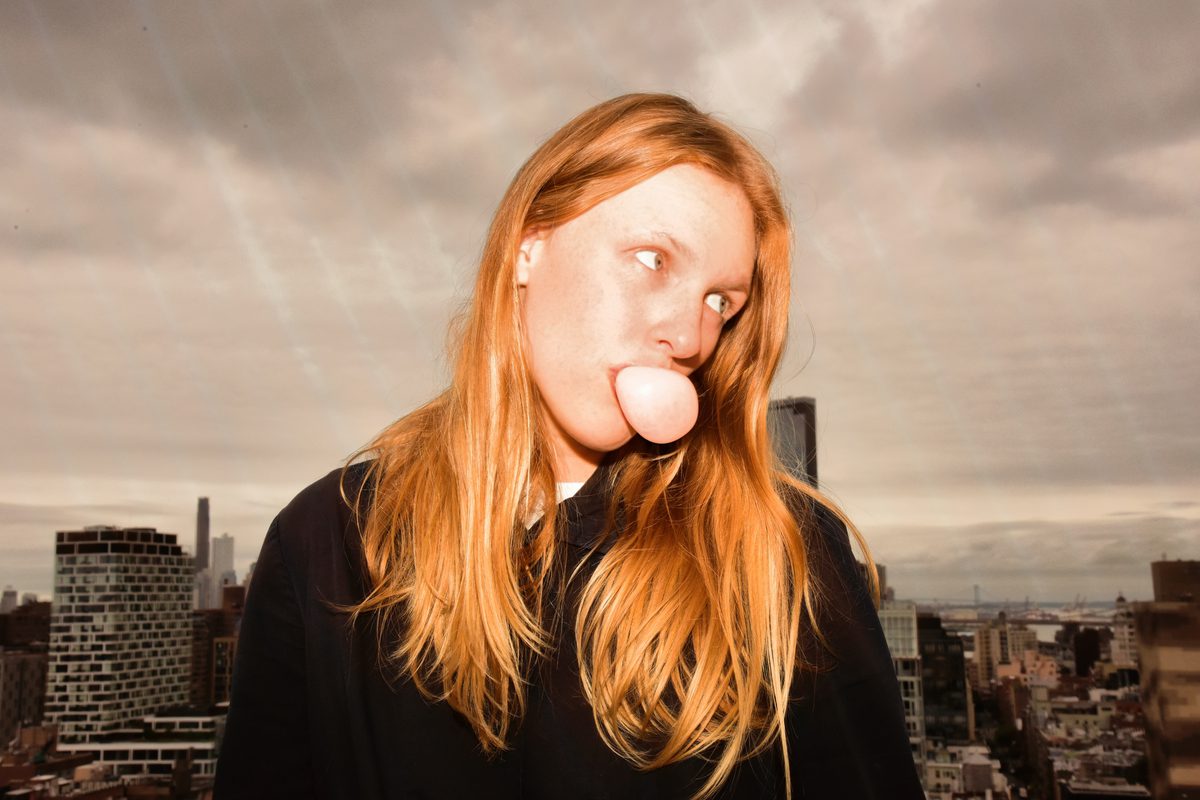
Audrey Hobert won't pretend for pop
Audrey Hobert's sharp, funny, and weirdly profound songwriting is turning heads, but real her power lies in radical sincerity, writes Laura David.
There’s nobody Audrey Hobert wants to be but herself – and rightfully so.
She’s calling me from what – I think – is her bedroom in LA. She spent the night before watching Act 2 of Hamilton – she’s a self-proclaimed theatre nerd – with her siblings, one of whom is fellow musical upstart Malcolm Todd. “If I could live with them, I would. But also, we’re not that close, you know? It’s not, like, freaky weird,” she tells me. Life on the whole, she says, is great.
Over the past few months, Hobert has transformed herself from the Internet’s favourite best friend (courtesy of a mega-successful stint co-writing with her former roommate, Gracie Abrams) into its new favourite pop star. Since the release of her debut single “Sue me” in May and its follow-up “Bowling Alley,” both zany, 2000s-inspired cuts, she’s been near ubiquitous. Everywhere I look, there Audrey Hobert is. Ethel Cain loves it. Katy Perry loves it. Hell, Alix Earle loves it. Sue me, I love it!
When speaking to NYLON for her first-ever print interview before the release of “Sue Me,” the publication’s chief editor Lauren McCarthy told Hobert that her life was likely about to change. She was right. When we catch up, Hobert is taking a moment of reprieve before the attention storm that’s brewing around her fully breaks.
Being with her siblings, Hobert tells me, is a balm. Both she and Todd are nurturing fast-growing creative careers (she even co-wrote “Concrete,” a song off Todd’s self-titled debut record), while the others are spread out across the country. Much of Hobert’s musical knowledge today, she confesses, came from Todd. Even though she still feels the older sister urge to boss him around, she calls him for any piece of advice on the business she needs. Becoming a star is a weird thing. It’s nice to do it with a friend (or a few).
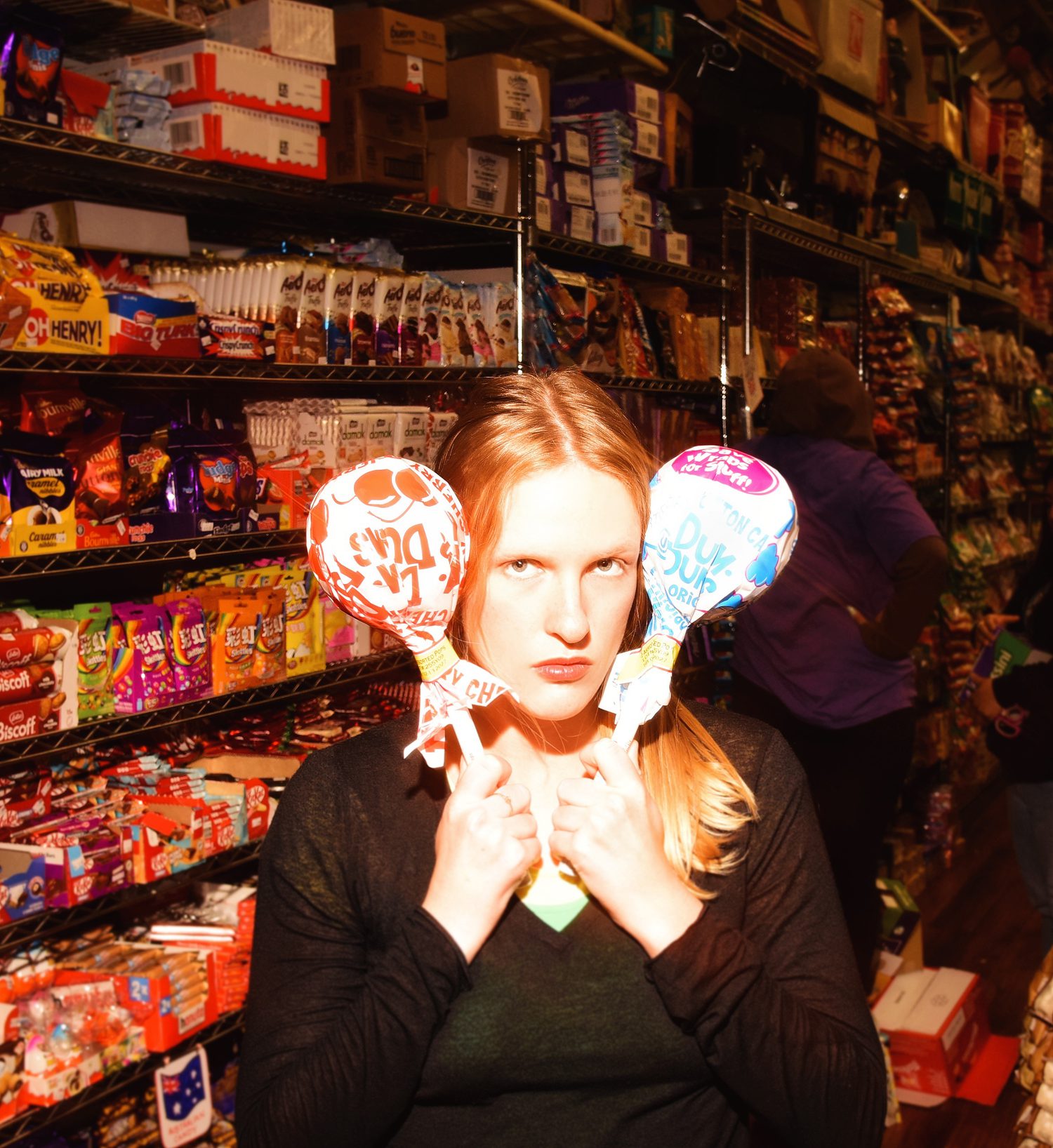
Hobert grew up in a fiercely tight-knit artistic family. Her father was a screenwriter, though she felt as a kid like he was “small potatoes” compared to other Hollywood heavy hitters she’d rub up against at school and around town. Her mother would drive her family around in a minivan and play musical soundtracks. “That’s how we all learned to harmonise!” she admits.
Her first love was not music but film, TV, and dance – a love that came less from her family history and more a Disney Channel fixation. “All of that Hannah Montanna music was being played at my dance studio, and I was just obsessed,” she tells me. “I used to stand on the couch in my parents’ den and stare at the ceiling and pray to God that someone would come discover me and put me on the Disney Channel.”
Through grade school, she would beg her mom to go to Disney Channel auditions. Unfortunately for the culture, her mom wouldn’t let her until she was 16. “I think I would have been a child star if she’d let me,” Hobert says, with no irony intended. But by the time she came of audition age, her Disney ambitions were in the rearview mirror. Instead, she became obsessively focused on theatre, dance, and writing.
In middle and high school, Hobert was an everything-kid, artistically at least. Mostly, though, she associated herself with film, theatre, and TV crowds and her goal was to follow in her father's footsteps: “From a very young age, I just thought the coolest thing you could do was be a screenwriter and make movies,” she says. “I’ve always forced my siblings and my cousins to be in movies over the summer. I was always directing.”
“I had my two cousins – Emma and Savannah – and my sister Ella in my last video. On set, someone asked them if it was crazy to watch me direct and be doing all this. They were just like, ‘No. We’ve been doing this for years in grandma’s basement.'”
Knowing she wanted to go to college, Hobert set her sights on NYU, which had a prestigious screenwriting program at its Tisch School of the Arts. “As soon as I discovered that program, I was like: ‘That’s what I’m gonna do.’ I applied early and got in. I only even applied to three colleges. I knew it was NYU or bust,” she tells me, grinning.
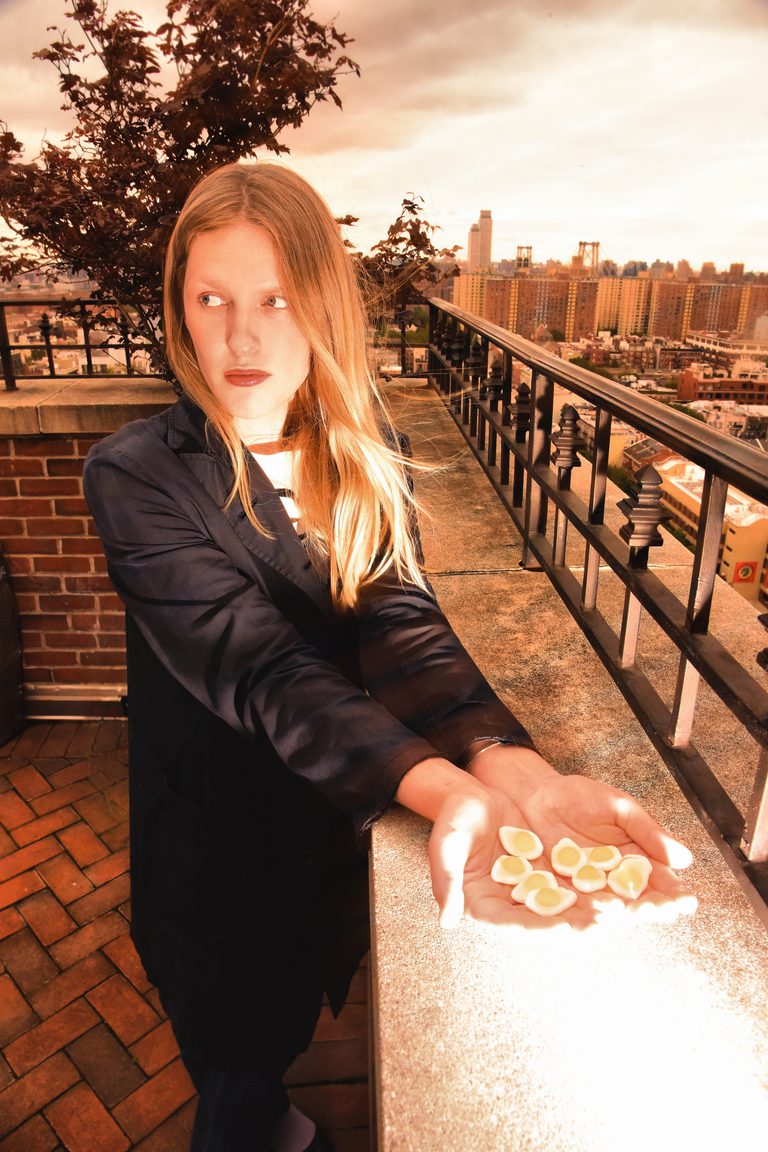
“When I look back, I was 18 when I got there, but I felt like an adult,” she recalls. Still, she admits her freshman year was hard and she was nursing a high school breakup with a guy who she stayed in love with for almost the entirety of that first year. “I’d be walking around like ‘Holy shit I’m in New York City! I’m studying the thing I’ve always wanted to be studying!’ But none of it felt good enough because he wasn’t there to witness it or available for me to tell about it,” she tells me.
Making friends was another problem. After spending her first 18 years in one place, finding new roots at the drop of a hat was hard to do. “I was just so pissed off thinking nobody knows how cool and great I am, and I have to prove it to people,” Hobert explains.
In the end it was good for her to go through, she says, reflecting. Eventually, she got over the breakup. And eventually, she made friends, too. She took her studies seriously. She loved school. Part of the wonder of being in the city was getting to write and direct with all the other kids she was studying alongside. The student art coming out of NYU was not just excellent but inspiring.
Her time at the school, though, came to a somewhat disappointing halt. Her final semester was eaten up by the pandemic, and she moved home to L.A. to complete her final semester online. To make some money and to give her some breathing room to find her footing, she worked at a restaurant for eight months until she got a job as a writer's personal assistant on a CBS show. “That was one of my favourite jobs I’ve ever had because I had such little responsibility, and I was with people my age," she tells me. "We would just run around the Warner Bros. lot, and I still to this day am best friends with one of the people who I worked with. I actually keep in touch with a lot of those people.”
Still – all of college and one job in – Hobert had no sights set on making a career out of music. After the first CBS gig ended, she got staffed on writing for a Nickelodeon show as a writer for two seasons, but then the show got cancelled. It was right around this time, she says, that she started writing with Gracie Abrams.
"All I ever wanted to do was say something that makes people go: That’s me! She just said that in a way that I’d never thought of before! That makes me feel seen!"
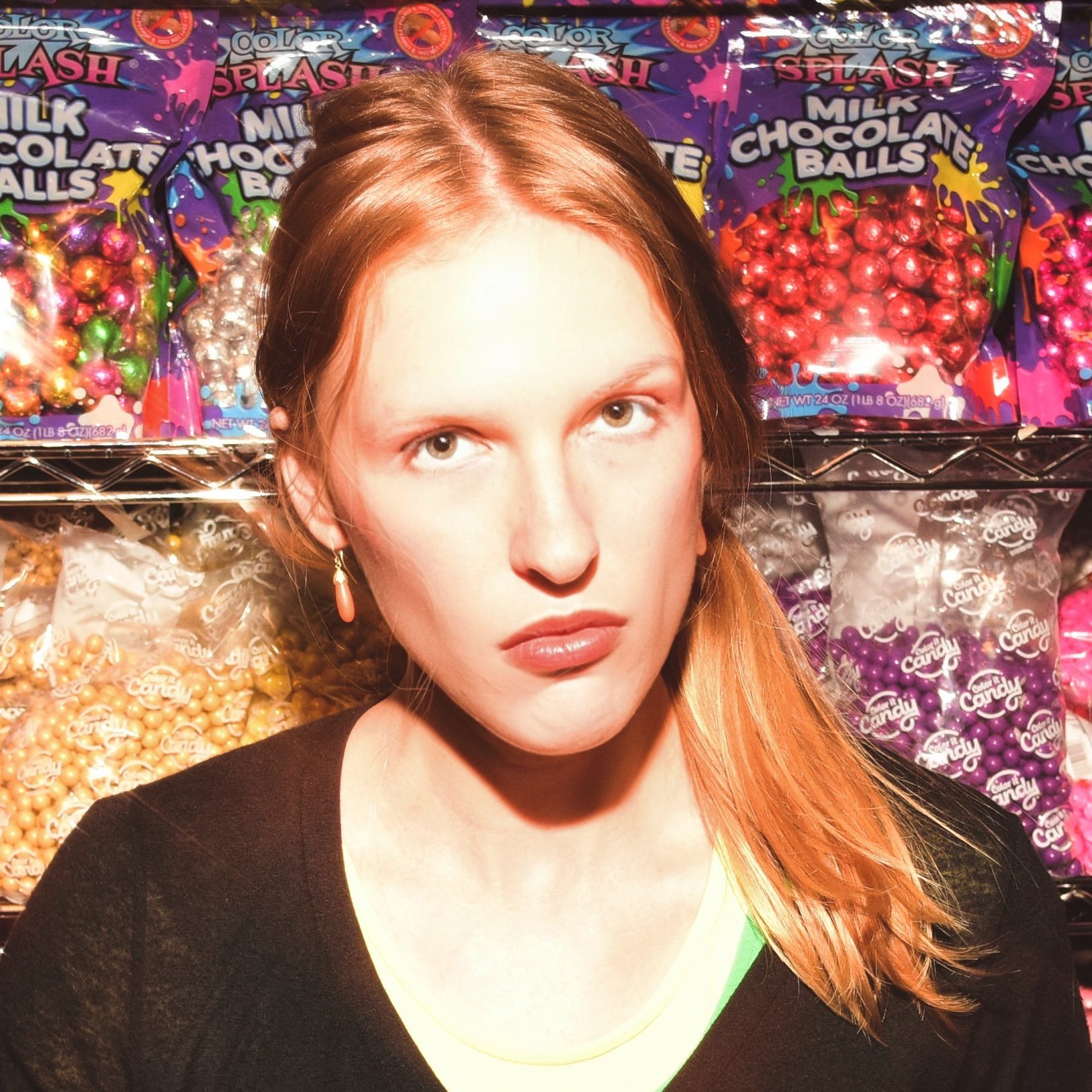
Hobert and Abrams infamously became friends at their fifth-grade graduation. They stayed close through grade school and college, overlapping on stints in New York and at home in L.A. Moving in together was a dream they’d always had, and so shortly after Hobert started screenwriting, they finally did it. Abrams’ star was rising at the time, and making music together was something they just did for fun.
“We were like six months into living with each other, and we just randomly started writing a song one day. It was not like a decision either of us made. She didn’t come to me asking if I’d write with her, and I didn’t ask to write a song with her. It just happened one day, and we didn’t stop for another six months,” Hobert explains.
“It was one of the happiest, best times of my life, and just getting to be creative with her even though I’d never done it before was amazing. She just respected me, and I obviously learned so much from her during that time. She’s the reason I got into this.”
Somewhere along the way – Hobert can’t exactly pinpoint when – it became clear that the stuff they were working on had “album” written all over it. Hobert signed a publishing deal in preparation, and so when she was let go at Nickelodeon, she realised she was still technically employed. “I just feel like, wow, what did I do to deserve such a well-timed life,” Hobert jokes. The Secret of Us, the record they had worked on together, took off, catapulting Abrams to global mega-stardom and Hobert to cult-icon status. It was then she realised she might just give the music thing a go, for real.
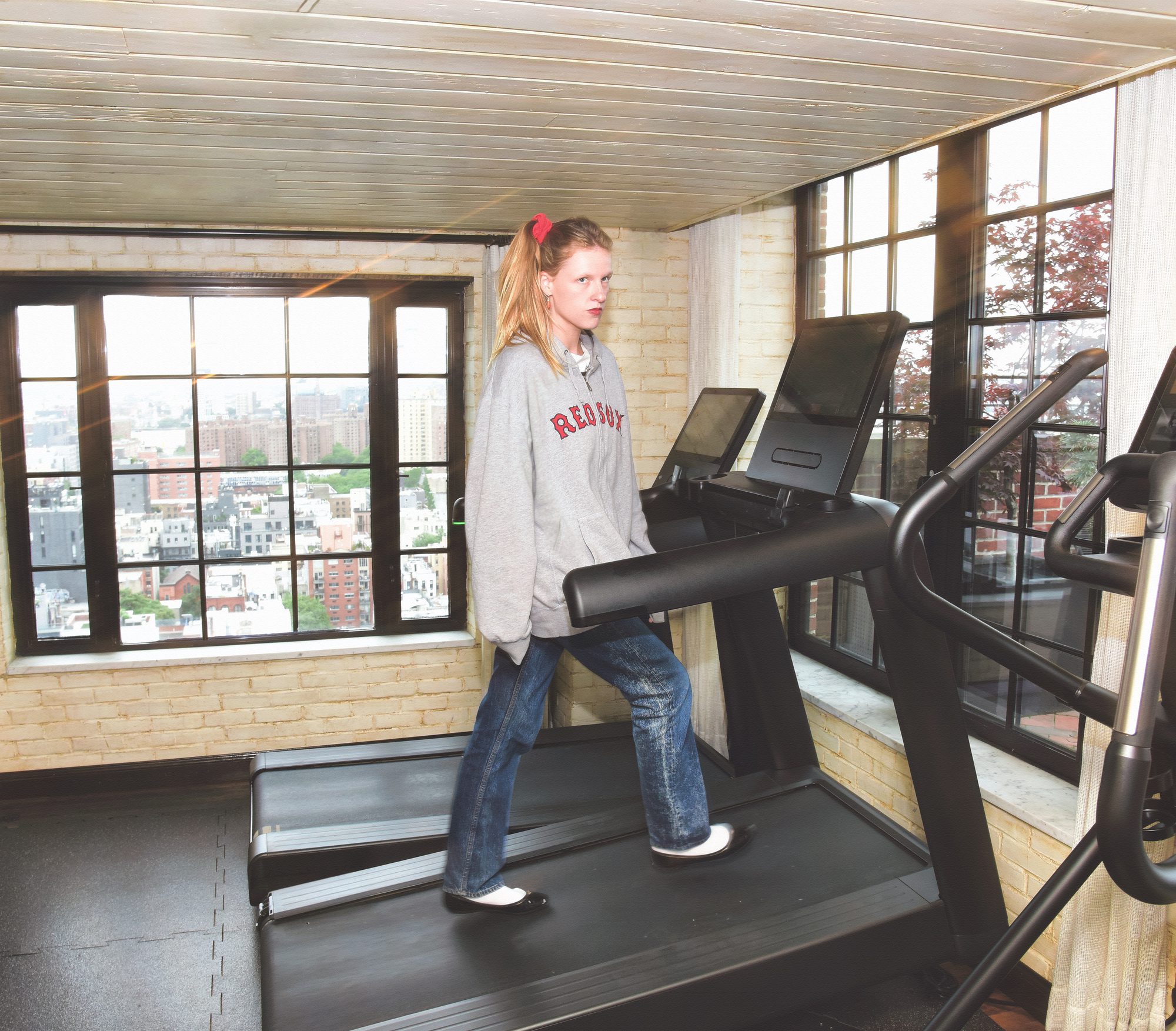
As all songwriters are, Hobert was sent out on the writing camp circuit. Post-Nickelodeon, she leaned into the potential unlocked by her publishing deal and ran with it. The experience both was and wasn’t what she'd hoped, at least in the beginning. “I started from this place of crazy cosmic connection someone and then I had to go and speed date,” she says. While with Abrams, songs came and went at their own pace, in writers’ rooms songs were supposed to be manufactured and polished in a matter of hours.
Growing detached from just being a writer on call, she started experimenting with making music for herself. "I understood that it was the greatest thing I’d ever experienced – that kind of fulfilment and how enthralled I was and focused I was,” Hobert says. For most of her life, she'd had operated as a loose creative arrow looking for a target – and finally, she’d found it. “I was at this point – a little over a year ago – where I’d just turned 25 and wanted to completely commitment myself to something. I honestly thought I was going to write a one-woman show, like a play, and I ended up writing songs.”
“I just found it was something that I didn’t have to force myself to sit down and do,” she continues. “I could sit down and start at noon and then blink and it’s nine pm and I’ve been doing it all day and I haven’t been bored for a single second. I might have been frustrated or pissed off that I can’t get a line, but I knew that it was something I could do. When it comes to the writing for my album, I knew it was like: Oh, I’m going to write every word of this thing.”
In two weeks, she sat down and wrote three songs, developed demos, and sent them to her publishing team at Universal. With their blessing, she shopped the song around and was able to find a label team. The final piece of the puzzle came when Ricky Gourmet, Hobert’s now-producer, signed on to the project.
Hobert and Gourmet met at a label Christmas party, just after the day she’d signed her publishing deal. Of course, she was attending with Abrams, but Gourmet was there with Finneas, his close friend and occasional collaborator. When they met, she felt again that cosmic connection she’d had with Abrams. “I remember meeting him and thinking I have either already known this person before, or I am going to know this person very, very, very well,” she confesses. “I always remembered feeling the kind of music he was bringing in was the most interesting stuff I’d heard across the board. And I remember thinking he was a unique setting. He was very funny, very unabashedly himself, and I was very drawn to him.”
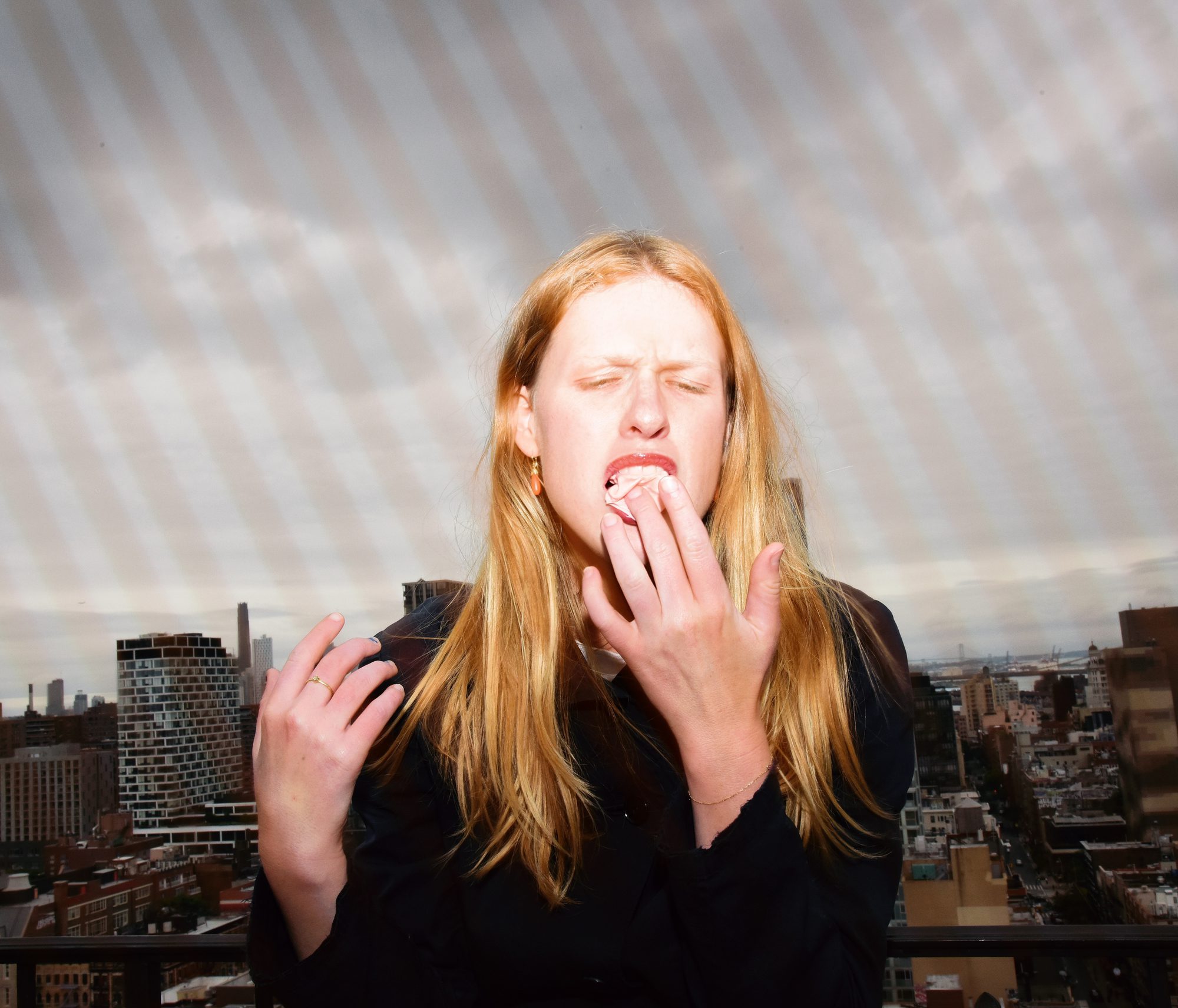
As Hobert hit the writing camp circuit, she and Gourmet often found themselves in the same room. When she finally was ready to get her project made, Gourmet was the first person she brought the songs to. A week later, they got to work. Hobert is relatively guarded about the exact details of her project, but she does hint that something big is coming and soon. The songs they created together are earnest, infectious, and fun. They’re pop songs done well, but not without their own distinctiveness.
They worked on “the project” for most of last year, banging out the final edits in lengthy sessions through the fall and into December. “In the last days it got kind of dark, just in that we were working long hours, but we never really got in a fight,” she says. “We would have a lot of arguments, and it was very passionate, I would say, and we would disagree and fight for what we thought. Sometimes he would win. A lot of times I would win.” Everything, though, was only for the betterment of the record, she explains. Both of them cared so much – and that was the best part of it all. In the end, they got what they were working on done in time. She assures me that there’s a very specific schedule and a very specific order in mind for the madness. It’s already slowly coming together right before her eyes – and the world’s. We are all – I’m starting to realise – somewhat at the mercy of Hobert’s master plan, in the very best way.
If Audrey Hobert the solo artist has a brand, it’s confidence. She’s got that kitschy early-2000s chic feel, like a play on Britney Spears, Paris Hilton, and, yes, Hannah Montana. But it’s also not really a facade, either. “Authenticity” has become a soulless buzzword, one that feels too contrived and pick-me these days for what Hobert has going on. The best way to put it is that she’s singular and self-assured, telling girlish stories the way Greta Gerwig or Sofia Coppola might. She’s exactly the type of person who you’d meet growing up and want to be their best friend. Like, yeah, of course the cover art for her first singles have her elegantly handcuffed to a clown that could have been generated on Kid Pix.
“The funny thing is Ricky doesn’t listen to pop music,” Hobert admits. “But I live and bleed for pop music, and I think that’s why I’m so proud of the way all the songs sound, because it’s just an amalgamation of our tastes. He has impeccable taste, and I’ve got the structure and feeling of a pop song ingrained in my heart and soul.”
The first song she released was “Sue Me,” an anthemic cut that sees Hobert unabashedly hit on an ex at a party. It went big on the Internet, the kind of song you can belt with your friends on a night out or a night in or after a breakup or before a one-night stand. But, she emphasizes, that’s not even her biggest party trick. “I didn’t put out ‘Sue Me’ knowing it was the big hit on the album. I’ve got lots more to show and give, and that’s why I’m just truly counting down the days. I just want it out,” Hobert says.
“Since I was a kid, all I ever wanted to do was say something that makes people go: ‘That’s me! She just said that in a way that I’d never thought of before! That makes me feel seen! It makes me feel like I can be myself! I don’t need my crush to like me back or this friend group to accept me – I can accept myself completely!’” Hobert says.
“I just want to inspire the youth,” she adds with a cheeky drawl and smiles. That, I assure her, she will certainly do.
Get the Best Fit take on the week in music direct to your inbox every Friday

Wet Leg
moisturizer

MF Tomlinson
Die To Wake Up From A Dream

BIG SPECIAL
National Average





